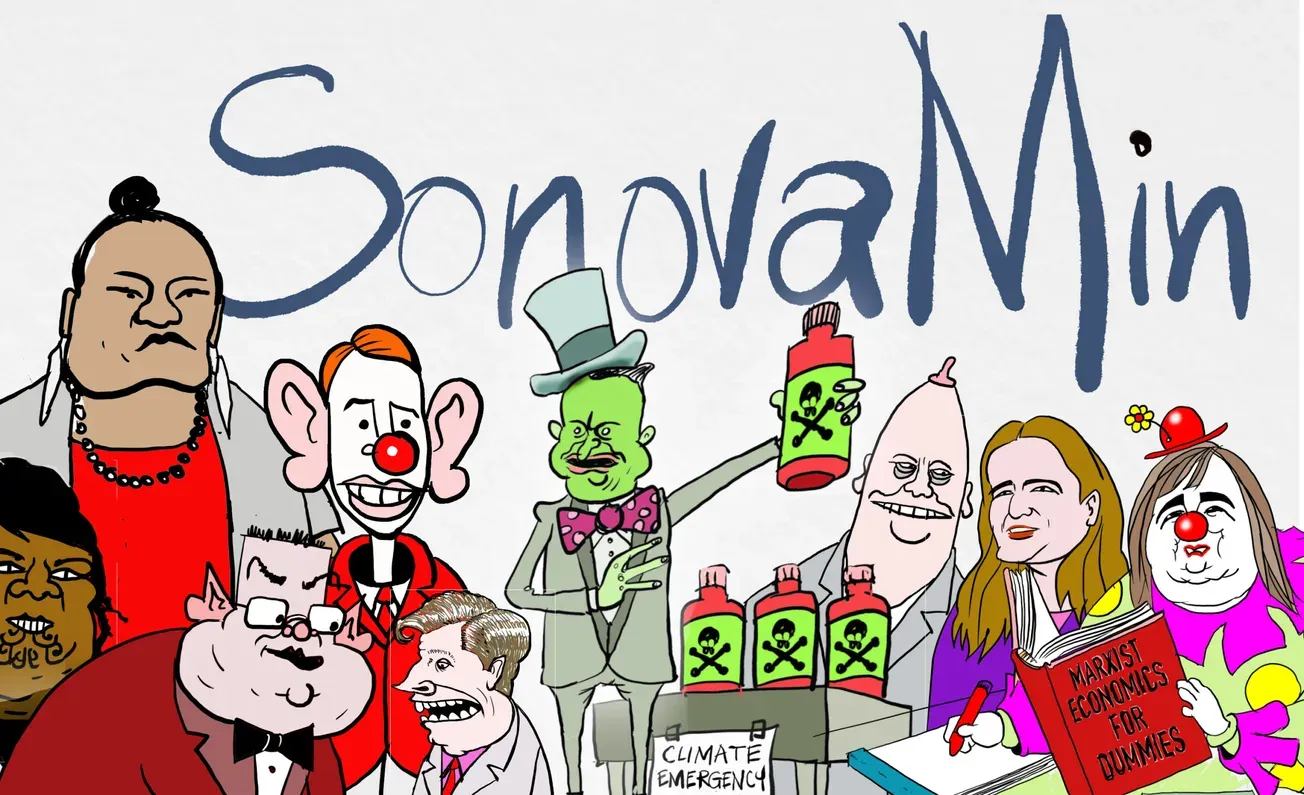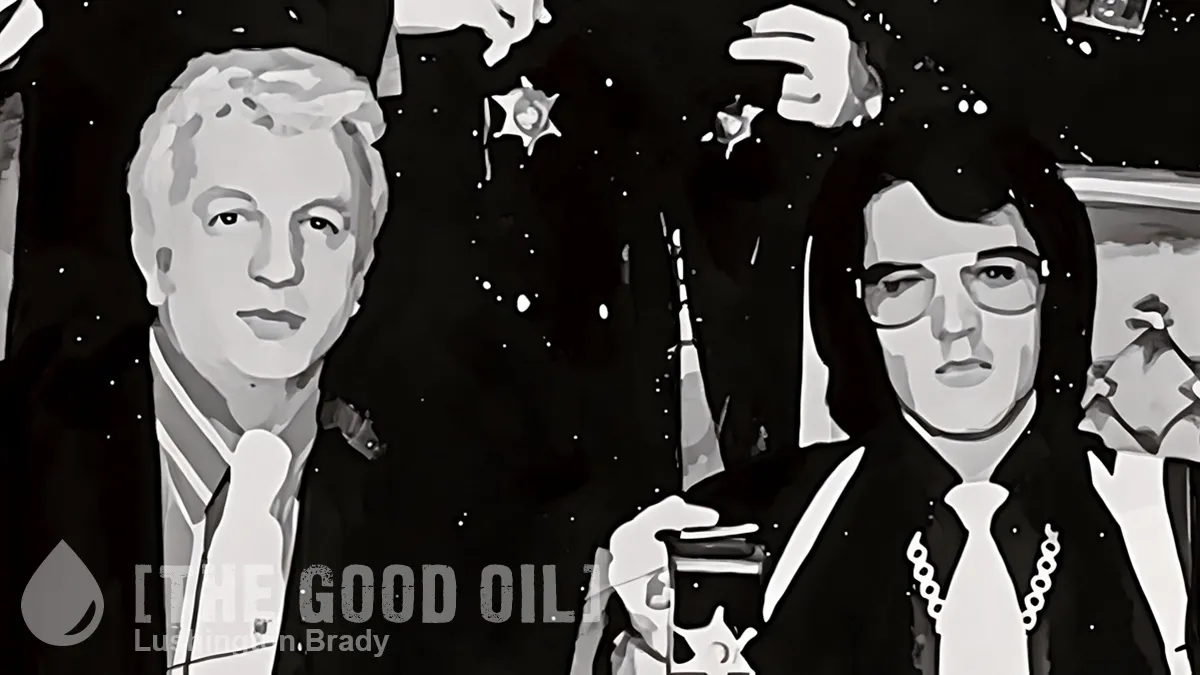Table of Contents
Cynthia Chung
strategic-culture.org
Cynthia Chung is a lecturer, writer and co-founder and editor of the Rising Tide Foundation (Montreal, Canada).
Warning
Long Read. 3875 words.
Klaus Schwab, the architect of the World Economic Forum (f. 1971), a leading, if not the leading, influencer and funder for what will set the course for world economic policy outside of government, has been the cause of much concern and suspicion since his announcement of “The Great Reset” agenda at the 50th annual meeting of the WEF in June 2020.
The Great Reset initiative is a somewhat vague call for the need for global stakeholders to coordinate a simultaneous “management” of the effects of COVID-19 on the global economy, which they have eerily named as “pandenomics.” This, we are told will be the new normal, the new reality that we will have to adjust ourselves to for the foreseeable future.

It should be known that at nearly its inception, the World Economic Forum had aligned itself with the Club of Rome, a think tank with an elite membership, founded in 1968, to address the problems of mankind. It was concluded by the Club of Rome in their extremely influential “Limits to Growth,” published in 1972, that such problems could not be solved on their own terms and that all were interrelated. In 1991, Club of Rome co-founder Sir Alexander King stated in the “The First Global Revolution” (an assessment of the first 30 years of the Club of Rome) that:
“In searching for a common enemy against whom we can unite, we came up with the idea that pollution, the threat of global warming, water shortages, famine and the like, would fit the bill. In their totality and their interactions these phenomena do constitute a common threat which must be confronted by everyone together. But in designating these dangers as the enemy, we fall into the trap, which we have already warned readers about, namely mistaking symptoms for causes. All these dangers are caused by human intervention in natural processes, and it is only through changed attitudes and behaviour that they can be overcome. The real enemy then is humanity itself.” [emphasis added]
It is no surprise that with such a conclusion, part of the solution prescribed was the need for population control.
However, what forms of population control was Klaus Schwab in particular thinking of?
In the late 1960s, Schwab attended Harvard and among his teachers was Sir Henry Kissinger, whom he has described as among the top figures who have most influenced his thinking over the course of his life.

[Henry Kissinger and his former pupil, Klaus Schwab, welcome former- UK PM Ted Heath at the 1980 WEF annual meeting. Source: World Economic Forum]
To get a better idea of the kinds of influences Sir Henry Kissinger had on young Klaus Schwab, we should take a look at Kissinger’s infamous NSSM-200 report: Implications of Worldwide Population Growth for US Security and Overseas Interests, otherwise known as “The Kissinger Report,” published in 1974. This report, declassified in 1989, was instrumental in transforming US foreign policy from pro-development/pro-industry to the promotion of under-development through totalitarian methods in support of population control. Kissinger states in the report:
“… if future numbers are to be kept within reasonable bounds, it is urgent that measures to reduce fertility be started and made effective in the 1970s and 1980s …[Financial] assistance will be given to other countries, considering such factors as population growth … Food and agricultural assistance is vital for any population sensitive development strategy … Allocation of scarce resources should take account of what steps a country is taking in population control … There is an alternative view that mandatory programs may be needed ..” [emphasis added]
For Kissinger, the US foreign policy orientation was mistaken on its emphasis of ending hunger by providing the means of industrial and scientific development to poor nations, according to Kissinger, such an initiative would only lead to further global disequilibrium as the new middle classes would consume more, and waste strategic resources.
In Thomas Malthus’ “Essay on the Principle of Population” (1799), he wrote:
“We should facilitate, instead of foolishly and vainly endeavoring to impede, the operations of nature in producing this mortality; and if we dread the too frequent visitation of the horrid form of famine, we should sedulously encourage the other forms of destruction, which we compel nature to use. In our towns we should make the streets narrower, crowd more people into the houses, and court the return of the plague.” [emphasis added]
As a staunch Malthusian, Kissinger believed that “nature” had provided the means to cull the herd, and by using economic policies that utilised the courting of the plague, famine and so forth, they were simply enforcing a natural hierarchy which was required for global stability.
In addition to this extremely worrisome ideology that is only a stone’s throw away from eugenics, there has also been a great deal of disturbance over the 2016 World Economic Forum video that goes through their 8 “predictions” for how the world will change by 2030, with the slogan “You’ll own nothing, and you’ll be happy.”

It is this slogan in particular that has probably caused the most panic amongst the average person questioning what the outcome of the Great Reset will truly look like. It has also caused much confusion as to who or what is at the root in shaping this very eerie, Orwellian prediction of the future?
Many have come to think that this root is the Communist Party of China. However, whatever your thoughts may be on the Chinese government and the intentions of President Xi, the roots of the Great Reset agenda can very clearly be traced back to 80 years ago, when an American, former Trotskyist who later joined the OSS, followed by the CIA, and went on to become the founding father of neo-conservatism, James Burnham, wrote a book on his vision for “The Managerial Revolution.”
In fact, it was the ideologies of Burnham’s “The Managerial Revolution” that triggered Orwell to write his “1984”.
The Strange Case and Many Faces of James Burnham
“[James Burnham is] the real intellectual founder of the neoconservative movement and the original proselytizer, in America, of the theory of ‘totalitarianism.’”
– Christopher Hitchens, “For the Sake of Argument: Essay and Minority Reports”
It is understandably the source of some confusion as to how a former high level Trotskyist became the founder of the neo-conservative movement; with the Trotskyists calling him a traitor to his kind, and the neo-conservatives describing it as an almost road to Damascus conversion in ideology.
However, the truth of the matter is that it is neither.
That is, James Burnham never changed his beliefs and convictions at any point during his journey through Trotskyism, OSS/CIA intelligence to neo-conservatism, although he may have back-stabbed many along the way, and this two-part series will go through why this is the case.
James Burnham was born in 1905 in Chicago, Illinois, raised as a Roman Catholic, later rejecting Catholicism while studying at Princeton and professing atheism for the rest of his life until shortly before his death whereby he reportedly returned to the church. (1) He would graduate from Princeton followed by the Balliol College, Oxford University and in 1929 would become a professor in philosophy at the New York University.
It was during this period that Burnham met Sidney Hook, who was also a professor in philosophy at the New York University, and who professed to have converted Burnham to Marxism in his autobiography. In 1933, along with Sidney Hook, Burnham helped to organize the socialist organization, the American Workers Party (AWP).
It would not be long before Burnham found Trotsky’s use of “dialectical materialism” to explain the interplay between the human and the historical forces in his “History of the Russian Revolution” to be brilliant. As founder of the Red Army, Trotsky had dedicated his life to the spread of a worldwide Communist revolution, to which Stalin opposed in the form of Trotsky’s “Permanent Revolution” ideology. In this ideology, Trotskyists were tactically trained to be militant experts at infighting, infiltration and disruption.
Among these tactics was “entryism,” in which an organisation encourages its members to join another, often larger organization, in an attempt to take over said organization or convert a large portion of its membership with its own ideology and directive.
The most well-known example of this technique was named the French Turn, when French Trotskyists in 1934 infiltrated the Section Francaise de l’International Ouvriere (SFIO, French Socialist Party) with the intention of winning over the more militant elements to their side.
That same year, Trotskyists in the Communist League of America (CLA) did a French turn on the American Workers Party, in a move that elevated the AWP’s James Burnham into the role of a Trotsky lieutenant and chief adviser.
Burnham would continue the tactics of infiltrating and subverting other leftist parties and in 1935 attempted to do a French Turn on the much larger Socialist Party (SP), however, by 1937, the Trotskyists were expelled from the Socialist Party which led to the formation of the Socialist Workers Party (SWP) at the end of the year. He would resign from the SWP in April 1940, and form the Workers Party only to resign less than two months later.
Burnham remained a “Trotskyist intellectual” from 1934 until 1940, using militant Trotskyist tactics against competing Marxist movements by turning their loyalties and ransacking their best talent. Although Burnham worked six years for the Trotskyists, as the new decade began, he renounced both Trotsky and “the ‘philosophy of Marxism’ dialectical materialism” altogether.
Perhaps Burnham was aware that the walls were closing in on Trotsky, and that it would only be a matter of six months from Burnham’s first renouncement that Trotsky would be assassinated by August 1940, at his compound outside Mexico City.
In February 1940 Burnham wrote “Science and Style: A Reply to Comrade Trotsky,” in which he broke with dialectical materialism, stressing the importance of the work of Bertrand Russell and Alfred North Whitehead’s approach:
“Do you wish me to prepare a reading list, Comrade Trotsky? It would be long, ranging from the work of the brilliant mathematicians and logicians of the middle of the last century to one climax in the monumental Principia Mathematica of Russell and Whitehead (the historic turning point in modern logic), and then spreading out in many directions – one of the most fruitful represented by the scientists, mathematicians and logicians now cooperating in the new Encyclopedia of Unified Science.” [emphasis added]
He summed up his feelings in a letter of resignation from the Workers Party on May 21, 1940:
“I reject, as you know, the “philosophy of Marxism,” dialectical materialism. …
The general Marxian theory of “universal history”, to the extent that it has any empirical content, seems to me disproved by modern historical and anthropological investigation.
Marxian economics seems to me for the most part either false or obsolete or meaningless in application to contemporary economic phenomena. Those aspects of Marxian economics which retain validity do not seem to me to justify the theoretical structure of the economics.
Not only do I believe it meaningless to say that “socialism is inevitable” and false that socialism is “the only alternative to capitalism”; I consider that on the basis of the evidence now available to us a new form of exploitive society (which I call “managerial society”) is not only possible but is a more probable outcome of the present than socialism. …
On no ideological, theoretic or political ground, then, can I recognize, or do I feel, any bond or allegiance to the Workers Party (or to any other Marxist party). That is simply the case, and I can no longer pretend about it, either to myself or to others.” [emphasis added]
In 1941, Burnham would publish “The Managerial Revolution: What is Happening in the World,” bringing him fame and fortune, listed by Henry Luce’s Life magazine as one of the top 100 outstanding books of 1924-1944. (2)
The Managerial Revolution
“We cannot understand the revolution by restricting our analysis to the war [WWII]; we must understand the war as a phase in the development of the revolution.”
– James Burnham “The Managerial Revolution”
In Burnham’s “The Managerial Revolution,” he makes the case that if socialism were possible, it would have occurred as an outcome of the Bolshevik Revolution, but what happened instead was neither a reversion back to a capitalist system nor a transition to a socialist system, but rather a formation of a new organizational structure made up of an elite managerial class, the type of society he believed was in the process of replacing capitalism on a world scale.
He goes on to make the case that as seen with the transition from a feudal to a capitalist state being inevitable, so too will the transition from a capitalist to managerial state occur. And that ownership rights of production capabilities will no longer be owned by individuals but rather the state or institutions, he writes:
“Effective class domination and privilege does, it is true, require control over the instruments of production; but this need not be exercised through individual private property rights. It can be done through what might be called corporate rights, possessed not by individuals as such but by institutions: as was the case conspicuously with many societies in which a priestly class was dominant…”
Burnham proceeds to write:
“If, in a managerial society, no individuals are to hold comparable property rights, how can any group of individuals constitute a ruling class?
The answer is comparatively simple and, as already noted, not without historical analogues. The managers will exercise their control over the instruments of production and gain preference in the distribution of the products, not directly, through property rights vested in them as individuals, but indirectly, through their control of the state which in turn will own and control the instruments of production. The state – that is, the institutions which comprise the state – will, if we wish to put it that way, be the ‘property’ of the managers. And that will be quite enough to place them in the position of the ruling class.”
Burnham concedes that the ideologies required to facilitate this transition have not yet been fully worked out but goes on to say that they can be approximated:
“from several different but similar directions, by, for example: Leninism-Stalinism; fascism-nazism; and, at a more primitive level, by New Dealism and such less influential [at the time] American ideologies as ‘technocracy’. This, then, is the skeleton of the theory, expressed in the language of the struggle for power.”
This is to be sure, a rather confusing paragraph but becomes clearer when we understand it from the specific viewpoint of Burnham. As Burnham sees it, all these different avenues are methods in which to achieve his vision of a managerial society because each form stresses the importance of the state as the central coordinating power, and that such a state will be governed by his “managers”. Burnham considers the different moral implications in each scenario irrelevant, as he makes clear early on in his book, he has chosen to detach himself from such questions.
Burnham goes to explain that the support of the masses is necessary for the success of any revolution, this is why the masses must be led to believe that they will benefit from such a revolution, when in fact it is only to replace one ruling class with another and nothing changes for the underdog. He explains that this is the case with the dream of a socialist state, that the universal equality promised by socialism is just a fairy tale told to the people so that they fight for the establishment of a new ruling class, then they are told that achieving a socialist state will take many decades, and that essentially, a managerial system must be put in place in the meantime.
Burnham makes the case that this is what happened in both Nazi Germany and Bolshevik Russia:
“Nevertheless, it may still turn out that the new form of economy will be called ‘socialist.’ In those nations – Russia and Germany – which have advanced furthest toward the new [managerial] economy, ‘socialism’ or ‘national socialism’ is the term ordinarily used. The motivation for this terminology is not, naturally, the wish for scientific clarity but just the opposite. The word ‘socialism’ is used for ideological purposes in order to manipulate the favourable mass emotions attached to the historic socialist ideal of a free, classless, and international society and to hide the fact that the managerial economy is in actuality the basis for a new kind of exploiting, class society.”
Burnham continues:
“Those Nations – [Bolshevik] Russia, [Nazi] Germany and [Fascist] Italy – which have advanced furthest toward the managerial social structure are all of them, at present, totalitarian dictatorships…what distinguishes totalitarian dictatorship is the number of facets of life subject to the impact of the dictatorial rule. It is not merely political actions, in the narrower sense, that are involved; nearly every side of life, business and art and science and education and religion and recreation and morality are not merely influenced by but directly subjected to the totalitarian regime.
It should be noted that a totalitarian type of dictatorship would not have been possible in any age previous to our own. Totalitarianism presupposes the development of modern technology, especially of rapid communication and transportation. Without these latter, no government, no matter what its intentions, would have had at its disposal the physical means for coordinating so intimately so many of the aspects of life. Without rapid transportation and communication it was comparatively easy for men to keep many of their lives, out of reach of the government. This is no longer possible, or possible only to a much smaller degree, when governments today make deliberate use of the possibilities of modern technology.”
Orwell’s Second Thoughts on Burnham
Burnham would go on to state in his “The Managerial Revolution” that the Russian Revolution, WWI and its aftermath, the Versailles Treaty gave final proof that capitalist world politics could no longer work and had come to an end. He described WWI as the last war of the capitalists and WWII as the first, but not last war, of the managerial society. Burnham made it clear that many more wars would have to be fought after WWII before a managerial society could finally fully take hold.
This ongoing war would lead to the destruction of sovereign nation states, such that only a small number of great nations would survive, culminating into the nuclei of three “super-states”, which Burnham predicted would be centered around the United States, Germany and Japan. He goes on to predict that these super-states will never be able to conquer the other and will be engaged in permanent war until some unforeseeable time. He predicts that Russia would be broken in two, with the west being incorporated into the German sphere and the east into the Japanese sphere. (Note that this book was published in 1941, such that Burnham was clearly of the view that Nazi Germany and fascist Japan would be the victors of WWII.)
Burnham states that “sovereignty will be restricted to the few super-states.”
In fact, he goes so far as to state early on in his book that the managerial revolution is not a prediction of something that will occur in the future, it is something that has already begun and is in fact, in its final stages of becoming, that it has already successfully implemented itself worldwide and that the battle is essentially over.
The National Review, founded by James Burnham and William F. Buckley (more on this in part two), would like to put the veneer that although Orwell was critical of Burnham’s views that he was ultimately creatively inspired to write about it in his “1984” novel. Yes, inspired is one way to put it, or more aptly put, that he was horrified by Burnham’s vision and wrote his novel as a stark warning as to what would ultimately be the outcome of such monstrous theorizations, which he would to this day organise the zeitgeist of thought to be suspicious of anything resembling his neologisms such as “Big Brother”, “Thought Police”, “Two Minutes Hate”, “Room 101”, “memory hole”, “Newspeak”, “doublethink”, “unperson”,”thoughtcrime”, and “groupthink”.
George Orwell, (real name Eric Arthur Blair), first published his “Second Thoughts on James Burnham” in May 1946. The novel “1984” would be published in 1949.
In his essay he dissects Burnham’s proposed ideology that he outlines in his “The Managerial Revolution” and “The Machiavellians” subtitled “Defenders of Freedom.”
Orwell writes:
“It is clear that Burnham is fascinated by the spectacle of power, and that his sympathies were with Germany so long as Germany appeared to be winning the war…curiously enough, when one examines the predictions which Burnham has based on his general theory, one finds that in so far as they are verifiable, they have been falsified…It will be seen that Burnham’s predictions have not merely, when they were verifiable, turned out to be wrong, but that they have sometimes contradicted one another in a sensational way…Political predictions are usually wrong, because they are usually based on wish-thinking…Often the revealing factor is the date at which they are made…It will be seen that at each point Burnham is predicting a continuation of the thing that is happening…the tendency to do this is not simply a bad habit, like inaccuracy or exaggeration…It is a major mental disease, and its roots lie partly in cowardice and partly in the worship of power, which is not fully separable from cowardice…
Power worship blurs political judgement because it leads, almost unavoidably, to the belief that present trends will continue. Whoever is winning at the moment will always seem to be invincible. If the Japanese have conquered south Asia, then they will keep south Asia for ever, if the Germans have captured Tobruk, they will infallibly capture Cairo…The rise and fall of empires, the disappearance of cultures and religions, are expected to happen with earthquake suddenness, and processes which have barely started are talked about as though they were already at an end. Burnham’s writings are full of apocalyptic visions…Within the space of five years Burnham foretold the domination of Russia by Germany and of Germany by Russia. In each case he was obeying the same instinct: the instinct to bow down before the conqueror of the moment, to accept the existing trend as irreversible.”
Interestingly, and happily we hear, George Orwell does not take Burnham’s predictions of a managerial revolution as set in stone, but rather, has shown itself within a short period of time to be a little too full of wishful thinking and bent on worshipping the power of the moment. However, this does not mean we must not take heed to the orchestrations of such mad men.
In Part two of this series, I will discuss Burnham’s entry into the OSS then CIA, how he became the founder of the neo-conservative movement and what are the implications for today’s world, especially concerning the Great Reset initiative.
The author can be reached at https://cynthiachung.substack.com/
Please share this article so that others can discover The BFD.







